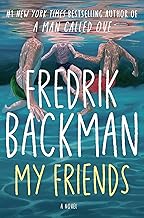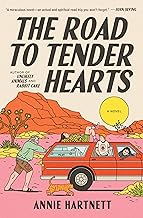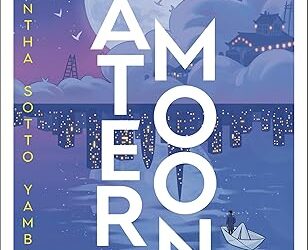I can’t remember exactly why I started reading Anna Karenina because it was so long ago, but I am somewhat confident it was a reference to C.S. Lewis’s book about love or maybe the one about grief. It was my hard book. I try to read two books at the same time, an easy one and a hard one; it’s just that I read at least three easy books in the time it took for this hard one, but it wasn’t hard to read, just long.
It was interesting, the structure of pre-revolutionary Russia, with the nobility, the peasants, and the building sense that something wicked this way was coming, not only culturally, but in the novel itself. Naturally, my favorite story line was the happy one, Levin’s story line, with Kitty, and how he was in love with her, but she in love with Vronsky, or at least thinking so, then the way Levin ran into her like 300 pages later, in the carriage, under a moon, still in love with her, and how that interaction was described. My impression is that Tolstoy was Levin, in his philosophizing and internal debate relative to the existence of God, and his struggle with faith, and figuring it out finally, in the end of course.
DH Lawrence, Tolstoy is not, as evidenced by Alexei Karenin having Anna come to his room. Everyone knows what they did, so, okay, I suppose, and a hundred, or was it two hundred pages later, when Anna did what she had wanted to do all along with Vronsky was modestly more descriptive, at least emotionally. And Levin and Kitty getting married—I’m pretty sure they consummated their marriage, but I couldn’t be positive other than there was a child.
I appreciated the humor of Levin getting married in the Russian Orthodox church, not that far apart from Catholic, and how Kitty was a believer, as most women were, and how he had to talk to the priest about his belief, but not wanting to lie about it. I liked those passages. And when his son was born.
And amidst the silence, as the indubitable reply to the mother’s question, a voice was heard, quite different from all the subdued voices speaking in the room. It was the bold, brazen cry, not intent on understanding anything, of a new human being who had appeared incomprehensibly from somewhere.
Tolstoy, Leo. Anna Karenina (Oprah’s Book Club): (Penguin Classics Deluxe Edition) (p. 656). Penguin Publishing Group. Kindle Edition.
And when Anna did it. So beautifully done.
‘Where am I? What am I doing? Why?’ She wanted to rise, to throw herself back, but something huge and implacable pushed at her head and dragged over her. ‘Lord, forgive me for everything!’ she said, feeling the impossibility of any struggle. A little muzhik, muttering to himself, was working over some iron. And the candle by the light of which she had been reading that book filled with anxieties, deceptions, grief and evil, flared up brighter than ever, lit up for her all that had once been in darkness, sputtered, grew dim, and went out for ever.
Tolstoy, Leo. Anna Karenina (Oprah’s Book Club): (Penguin Classics Deluxe Edition) (p. 701). Penguin Publishing Group. Kindle Edition.
And a metaphysical passage of Levin’s doubt.
‘In infinite time, in the infinity of matter, in infinite space, a bubble-organism separates itself, and that bubble holds out for a while and then bursts, and that bubble is – me.’ This was a tormenting untruth, but it was the sole, the latest result of age-long labours of human thought in that direction. This was the latest belief on which all researches of the human mind in almost all fields were built. This was the reigning conviction, and out of all other explanations it was precisely this one that Levin, himself not knowing when or how, had involuntarily adopted as being at any rate the most clear.
Tolstoy, Leo. Anna Karenina (Oprah’s Book Club): (Penguin Classics Deluxe Edition) (pp. 721-722). Penguin Publishing Group. Kindle Edition.
Then, he starts to “get it.”
Lying on his back, he was now looking at the high, cloudless sky. ‘Don’t I know that it is infinite space and not a round vault? But no matter how I squint and strain my sight, I cannot help seeing it as round and limited, and despite my knowledge of infinite space, I am undoubtedly right when I see a firm blue vault, more right than when I strain to see beyond it.’ Levin had stopped thinking and was as if only listening to the mysterious voices that spoke joyfully and anxiously about something among themselves. ‘Can this be faith?’ he wondered, afraid to believe his happiness. ‘My God, thank you!’ he said, choking back the rising sobs and with both hands wiping away the tears that filled his eyes.
Tolstoy, Leo. Anna Karenina (Oprah’s Book Club): (Penguin Classics Deluxe Edition) (p. 732). Penguin Publishing Group. Kindle Edition.
And at the end, when he “get’s it,” he’s with Kitty, and she’s looking at him and he sees she understands, but then asks him to do something:
‘Very well, I’ll make sure,’ said Levin, getting up and kissing her. ‘No, I won’t tell her,’ he thought, as she walked on ahead of him. ‘It’s a secret that’s necessary and important for me alone and inexpressible in words. ‘This new feeling hasn’t changed me, hasn’t made me happy or suddenly enlightened, as I dreamed – just like the feeling for my son. Nor was there any surprise. And faith or not faith – I don’t know what it is – but this feeling has entered into me just as imperceptibly through suffering and has firmly lodged itself in my soul. ‘I’ll get angry in the same way with the coachman Ivan, argue in the same way, speak my mind inappropriately, there will be the same wall between my soul’s holy of holies and other people, even my wife, I’ll accuse her in the same way of my own fear and then regret it, I’ll fail in the same way to understand with my reason why I pray, and yet I will pray – but my life now, my whole life, regardless of all that may happen to me, every minute of it, is not only not meaningless, as it was before, but has the unquestionable meaning of the good which it is in my power to put into it!’
Tolstoy, Leo. Anna Karenina (Oprah’s Book Club): (Penguin Classics Deluxe Edition) (p. 747). Penguin Publishing Group. Kindle Edition.
This is what I found most interesting—Levin’s struggle with faith. During his crisis of faith, he experienced significant suicidal ideations, as did Anna Karenina, not over faith, but over her hopeless situation, with the other difference being that she followed through on it.
That’s always the question, the meaning of life thing. Everyone is focused on their wants and desires, and that takes so much energy and time and effort that you lose sight of what really matters, which is what Levin figured out at the end.




0 Comments